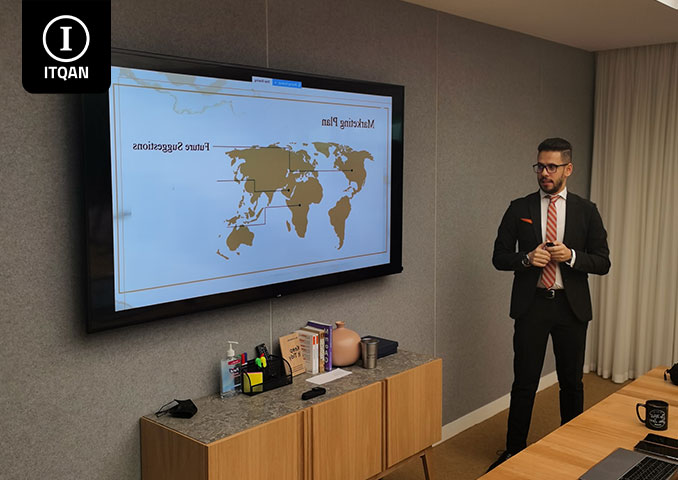Establishing a company in a free zone. Free zones are considered one of the most important solutions offered by countries to attract foreign investments and stimulate economic growth. These areas are characterized by providing a suitable commercial environment for companies and investors by offering many advantages and facilities that contribute to reducing costs and increasing profits. Establishing a company in the free zone is a strategic choice for many businessmen, especially in light of globalization and intense competition in global markets.
In this article, establishing a company in a free zone, we will review the benefits that investors can gain from establishing their companies in free zones, in addition to the steps that must be followed to achieve this goal. We will also discuss some of the challenges that companies in these regions may face and how to overcome them. By understanding these multiple aspects, investors can make informed decisions that enhance the chances of success of their projects in free zones.

Establishing a company in the free zone
جدول المحتوى
ToggleBenefits of establishing a company in the free zone
Free zones have many advantages that make them an attractive destination for investors and entrepreneurs. Establishing a company in a free zone offers a number of benefits that can be crucial to business success. In this section, we will discuss the most important of these benefits:
Tax exemptions
One of the biggest benefits that free zones offer are tax breaks. In many free zones, companies are exempt from paying taxes on profits for periods of time extending over several years, sometimes to the point of not paying taxes at all. This constitutes a great incentive for companies seeking to maximize their profits and reduce their operational costs. In addition, companies in free zones are exempt from value-added tax and customs duties on imports and exports, which enhances their competitiveness in global markets.
Ease of procedures
Free zones are characterized by advanced infrastructure and simplified procedures for establishing companies. These procedures are designed to be quick and efficient, helping companies start operations as quickly as possible. Many free zones provide comprehensive services that include submitting documents, obtaining licenses, and even providing offices and warehouses. All of this makes the process of establishing a company less complicated and saves investors time and effort.
Access to global markets
Establishing a company in the free zone gives companies the opportunity to access global markets easily. Thanks to the strategic location of many free zones, companies can benefit from advanced transportation networks that include seaports, airports and highways. This helps facilitate the export and import process and enhances companies’ ability to expand into new markets. In addition, free zones provide opportunities for cooperation and partnership with other international companies, which contributes to enhancing growth and expansion.
By choosing to establish a company in the free zone, investors can benefit from these and other benefits, enabling them to build a successful and sustainable business in a supportive and conducive environment.
Steps to establish a company in the free zone
Establishing a company in a free zone requires following a set of systematic steps to ensure compliance with laws and obtaining all necessary licenses. In this section, we will review the main steps that must be followed to achieve this:
Choose the company type
The first step in establishing your company in the free zone is to choose the type of company that suits your goals and needs. There are several types of companies you can establish, such as:
- Limited Liability Company (LLC): This is the most common option, as its shareholders have limited liability for the company’s debts.
- Branch of a foreign company: If you have an existing company in another country, you can establish a branch in the free zone.
- Representative Office: This type of company is suitable for companies that want to conduct market research or promote their products and services without directly carrying out commercial activities.
Submit the required documents
After choosing the company type, you must submit a set of required documents to the free zone authorities. These documents usually include:
- Application Form: A company incorporation application form must be completed and submitted.
- Copy of passport: for all shareholders and directors.
- Business plan: It explains the company’s goals and planned activities.
- Memorandum of Association and Articles of Association: defines the rights and duties of shareholders and directors.
- Proof of address: such as an electricity or water bill proving the shareholders’ residence address.
You must ensure that all required documents are submitted correctly to avoid any delays in the incorporation process.
Obtaining the necessary licenses
After submitting the documents and completing the initial procedures, you must obtain the necessary licenses to conduct business activity in the free zone. These licenses usually include:
- Commercial License: Allows you to carry out the commercial activities specified in your application.
- Operating License: Allows you to start actual operations at the company’s headquarters.
- Additional permits: You may need additional permits depending on the type of activity you will be engaging in, such as import and export permits.
Once you obtain all the licenses, you can start operating your company in the free zone and benefit from the many benefits these zones offer.

Potential challenges of establishing a company in the free zone
Potential challenges of establishing a company in the free zone
Despite the many benefits that come with establishing a company in a free zone, there are also some potential challenges that investors should consider before embarking on this step. Among these challenges:
High costs
Establishing and operating a company in a free zone can be expensive. High costs may include setup fees, rent, employee salaries, and logistics costs. In addition, some free zones may require an annual fee to maintain a license and registration. Therefore, it is necessary to create an accurate budget and carefully estimate potential costs before making a decision.
Changes in laws
Laws and regulations governing free zones may change over time, which may affect companies operating within them. Amendments to legislation may include changes in taxes, licensing requirements, or investment conditions. It is important for businesses to be aware of potential legal changes and have plans to adapt to them to ensure business continuity.
Intense competition
Given the attractiveness of free zones to companies from around the world, competition can be intense in some sectors. New companies may have difficulty standing out and attracting customers in an environment crowded with international and local players. Therefore, companies must develop effective marketing strategies and build a strong network of relationships to enhance their chances of success.
In the end, although there are some challenges, they can be overcome through good planning and careful market analysis. Companies that invest time and resources in understanding the operating environment and potential risks will be better positioned to succeed in the free zone.
Our company’s role in establishing a company in the free zone
In conclusion, it can be said that establishing a company in a free zone provides many attractive benefits that may make it the ideal choice for businessmen and investors. From tax exemptions that help reduce operational costs, to ease of procedures that save time and effort, to the ability to easily access global markets, free zones constitute an ideal environment for business growth and expansion.
However, investors should be aware of the potential challenges they may face, such as the high costs associated with establishing and maintaining a company, and constant changes in laws and legislation, which may affect the conduct of the business. In addition, intense competition within free zones requires companies to innovate and provide added value to stay ahead.
Overall, free zones are a golden opportunity for investors seeking to expand their business and reach new markets, provided that there is good planning and preparation in advance to face potential challenges. By taking the right steps and exploiting the available opportunities, great success can be achieved and the desired goals can be achieved.
Frequently asked questions about establishing a company in the free zone
What types of companies can be established in free zones?
Free Zone Limited Liability Company (FZ LLC). Branch of a foreign company. A branch of a local company. Representative office.
What are the basic steps to establish a company in the free zone?
Determine the type of business activity. Choosing and registering a trade name. Submit an application for initial approval. Preparing and documenting the articles of association and articles of association. Rent an office or commercial space. Submit a commercial license application and pay the fees. Receive the commercial license and start work.
What are the documents required to establish a company in the free zone?
Copies of passports of shareholders and directors. Lease contract for office or commercial space. workplan. The company’s articles of incorporation and articles of association. Approvals of relevant government agencies (if any).
What are the tax advantages for companies in the free zone?
Tax exemption on income and profits for up to 50 years. Exemption from customs duties on imports and exports. No sales tax.
What is the time period required to establish a company in the free zone?
The process can take from a few days to a few weeks, depending on the completion of documents and procedures.
Can foreigners own a company entirely in the free zone?
Yes, foreigners can own a company outright without needing a local partner.

















